第37章 IN THE VALLEY OF THE MIMENTE(2)
I was much disturbed by the barking of a dog, an animal that I fear more than any wolf. A dog is vastly braver, and is besides supported by the sense of duty. If you kill a wolf, you meet with encouragement and praise; but if you kill a dog, the sacred rights of property and the domestic affections come clamouring round you for redress. At the end of a fagging day, the sharp cruel note of a dog's bark is in itself a keen annoyance; and to a tramp like myself, he represents the sedentary and respectable world in its most hostile form. There is something of the clergyman or the lawyer about this engaging animal; and if he were not amenable to stones, the boldest man would shrink from travelling afoot. I respect dogs much in the domestic circle; but on the highway, or sleeping afield, I both detest and fear them.
I was wakened next morning (Wednesday, October 2nd) by the same dog - for I knew his bark - making a charge down the bank, and then, seeing me sit up, retreating again with great alacrity. The stars were not yet quite extinguished. The heaven was of that enchanting mild grey-blue of the early morn. A still clear light began to fall, and the trees on the hillside were outlined sharply against the sky. The wind had veered more to the north, and no longer reached me in the glen; but as I was going on with my preparations, it drove a white cloud very swiftly over the hill-top; and looking up, I was surprised to see the cloud dyed with gold. In these high regions of the air, the sun was already shining as at noon. If only the clouds travelled high enough, we should see the same thing all night long. For it is always daylight in the fields of space.
As I began to go up the valley, a draught of wind came down it out of the seat of the sunrise, although the clouds continued to run overhead in an almost contrary direction. A few steps farther, and I saw a whole hillside gilded with the sun; and still a little beyond, between two peaks, a centre of dazzling brilliancy appeared floating in the sky, and I was once more face to face with the big bonfire that occupies the kernel of our system.
I met but one human being that forenoon, a dark military-looking wayfarer, who carried a game-bag on a baldric; but he made a remark that seems worthy of record. For when I asked him if he were Protestant or Catholic - 'Oh,' said he, 'I make no shame of my religion. I am a Catholic.'
He made no shame of it! The phrase is a piece of natural statistics; for it is the language of one in a minority. I thought with a smile of Bavile and his dragoons, and how you may ride rough-shod over a religion for a century, and leave it only the more lively for the friction. Ireland is still Catholic; the Cevennes still Protestant. It is not a basketful of law-papers, nor the hoofs and pistol-butts of a regiment of horse, that can change one tittle of a ploughman's thoughts. Outdoor rustic people have not many ideas, but such as they have are hardy plants, and thrive flourishingly in persecution. One who has grown a long while in the sweat of laborious noons, and under the stars at night, a frequenter of hills and forests, an old honest countryman, has, in the end, a sense of communion with the powers of the universe, and amicable relations towards his God. Like my mountain Plymouth Brother, he knows the Lord. His religion does not repose upon a choice of logic; it is the poetry of the man's experience, the philosophy of the history of his life. God, like a great power, like a great shining sun, has appeared to this simple fellow in the course of years, and become the ground and essence of his least reflections; and you may change creeds and dogmas by authority, or proclaim a new religion with the sound of trumpets, if you will; but here is a man who has his own thoughts, and will stubbornly adhere to them in good and evil. He is a Catholic, a Protestant, or a Plymouth Brother, in the same indefeasible sense that a man is not a woman, or a woman not a man. For he could not vary from his faith, unless he could eradicate all memory of the past, and, in a strict and not a conventional meaning, change his mind.